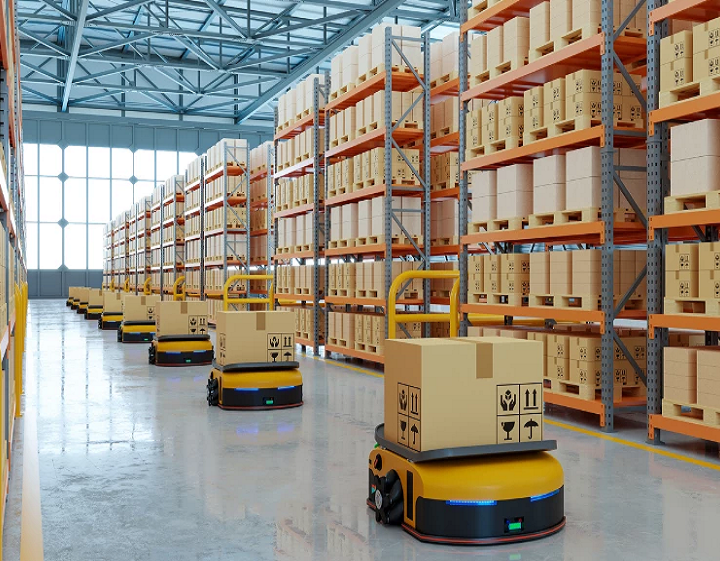Going into 2025, the forex trading industry is set for some major shifts. From blockchain and artificial intelligence to the rise of prop trading, these innovations could continue to change how traders will interact with the markets, offering even more opportunities for efficiency, transparency, and growth. This article outlines some key technologies and trends that look likely to define the future of forex trading.
1. Blockchain Technology and Decentralization
Blockchain technology has taken over many industries by storm, online trading included. Given its nature, being decentralized, such technology would be apt for bringing about transparency and security to forex trading. New trading platforms are emerging using blockchain-powered options, which facilitate direct peer-to-peer trading options without intermediaries in action. This would mean lower transaction costs along with increased transparency for traders.
The integration of smart contracts forms a core part of the potential inherent in blockchain. This form of self-executing contract automates trade settlement and removes latencies, hence facilitating easier and quicker trading.
This means traders could have less to worry when it comes to manipulation of data or delays, as with blockchain, everything is public and verified on the ledger, and hence unalterable.
2. Artificial Intelligence and Machine Learning
Artificial intelligence and machine learning are already making waves in Forex trading, and the influence is only bound to increase. AI-enabled algorithms process large chunks of data in split seconds, find complex patterns, and result in actionable trading insights.
Overtime, we’re likely to see even smarter AI emerge with use cases for online trading. Examples include natural language processing and real-time sentiment analysis, where the market sentiment could be pulled from news sources and social media in real time.
For traders, this means improved predictive capabilities to enable them to make better-informed decisions based on historical and real-time data. These systems are becoming more user-friendly, whereby both the novice and accomplished trader can benefit from sophisticated market analysis without requiring an in-depth advanced technical background.
Similarly, brokers could use AI to enhance their forex education platform, with the potential to assist with vast content creation idea generation.
3. Quantum Computing
In turn, quantum computers are still fairly new and upcoming pieces of technology; they hold the transformative potential for traders. Quantum computers are expected to process information with unprecedented speeds, way outstripping traditional computing. This capability is particularly relevant in forex trading, given the need to analyze real-time global market data.
With quantum computing, traders will have advanced portfolio optimization and risk management tools. This means the ability to analyze and react to market fluctuations in milliseconds. While complete benefits of quantum computing are still years away, early applications may appear as early as next year that will radically improve trading practices, especially those high-frequency trading scenarios.
4. Smart Risk Management Tools to Adapt in Real Time
Successful traders build their foundations on risk management, and the next wave of innovation will take this to a higher level. The next waves of risk management solutions powered by AI and ML enable traders to analyze and hedge risks in real time as volatility and conditions change.
These tools are bound to incorporate real-time market data for an exact position at any given moment. Just imagine an AI-powered assistant that is always observing the markets for any changes in conditions. This could even extend to instantly readjusting your positions or calling your attention based on predetermined criteria. This is something that both individual and institutional traders would highly appreciate in highly volatile markets.
5. Superior Level of Cybersecurity in the Digital Economy
Moreover, since forex trading has become more digital, sophisticated cybersecurity is an urgent need. Encryption innovations, biometric authentications, and secure communication protocols have become integral in the protection of traders’ accounts and data from cyber threats.
This is set to continue in 2025, with even better security as technology firms maintain protective mechanisms over their user data and ensure that trading platforms are safe from hacking risks. This sets up a more secure environment for traders to work within, particularly as trading continues to expand online and into mobile platforms.
6. Compliance and Regulatory Technology
Changes to regulations mark the online trading landscape, and technology can become an important key to keeping traders, affiliates, and brokers compliant. Regulatory Technology, better known as RegTech solutions, will ease compliance by automatically monitoring all trading activity and ensuring that all players, especially brokers, comply with constantly updated guidelines.
This suite of tools would further enable both traders and brokers to address regulatory needs more smoothly, reduce risks attendant on issues related to non-compliance, and introduce greater transparency into the industry.
7. Prop Trading Goes Retail
The latest and one of the most exciting happenings in the world of forex is the addition of prop trading for retail clients. So far, prop trading firms used to be exclusive for professional traders. Nowadays, many have opened up their doors to retail traders. Major brokers like ATFX are already dabbling in this space, offering traders access to funded accounts with potential profit sharing.
It’s opening new paths for retail traders to gain access to higher leverage and more trading capital without risking their own capital in the first place. It offers a straightforward route for traders to train and work their way up to earning trading income. As this model continues to develop, we’re likely to continue seeing more brokers adopt this strategy and compete in the market, aiming to benefit retail traders with new avenues into professional trading.
Hello to the Future of Forex
In the coming years, from increased transparency of blockchain to the predictive powers of AI, things could hit the forex market like a tsunami of change.
This will present traders with new tools and opportunities along with challenges. Traders can leverage this innovation in their strategies, risk management, and success in the fast-evolving market by staying current with information about such developments.
Shifting technology won’t only not only shape how forex is traded but will actually redefine the experience, accessibility, and potential for success at every touch point for traders. Be it an institutional player or a retail trader in the UAE, staying in tandem with these trends will mean the difference between tomorrow’s leaders and today’s laggards.
Looking for comprehensive forex trading education Dubai? Visit FX Newsroom for the best forex education for traders.






